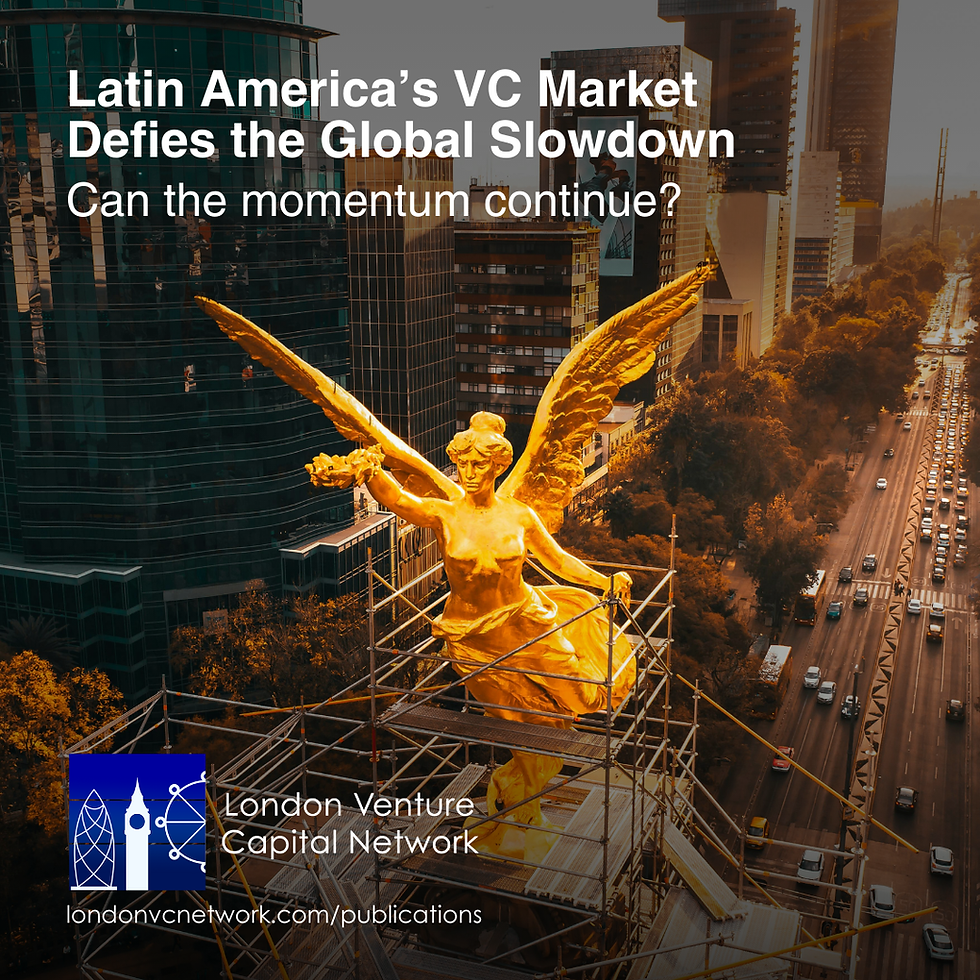Gen Z Investors: What makes them different from past generations’ investors?
- LVCN Research & Publications Team

- Jul 8, 2024
- 3 min read
Updated: Apr 7

Written by: Andrew Mazalkov
Venture capital, relative to the history of finance, is a new industry. The concept of large investment into risky ventures, with exponentially high pay-offs, is one that allowed Christopher Columbus to secure funding to find new lands and resources.
But have attitudes changed since the days where the world was still being explored for untold wealth and fortune? After all, considering the last few decades of “modern” venture capital, there seems to be a common trend of institutional money propping up unprofitable companies until they break into enough market share to finally deliver returns.
We saw that trend eventually leading to the dot-com boom, and arguably its crash: household favourites such as Pets.com, Webvan and eToys welcomed their regular injections of capital, driving VC and retail investors alike into the fray of high valuations and the allure of early retirement.

What followed was a sullen period of lesser deal volume, anxious investors and a lack of innovation in a time where it was needed the most. Some of the largest names in tech either found their beginnings following the dot-com crash, or indeed showed their resilience to surviving such situations, but it was arguably the period following the Great Financial Crisis where VC finally found itself back at its roots.
So for the investors who didn’t start their careers during periods of low interest rates, plenty of deals and as many companies as they could wish for, what does the investment process look like for them?
How does our generation invest?
It comes as little surprise that social responsibility, focus on ethical business and driving impact beyond profits are some of the key drivers motivating Gen Z VCs to push for improved standards across deals. An article by VC Writer cites these factors, amongst others, as key insights into the reshaping of an industry on a global basis.
With the boom of technology becoming a mainstay throughout an investment process, another consideration is a Gen Z VC’s approach to leveraging their tech in a new way. Digital presence has fast become a necessity for the younger generation of VCs to source new deals, see trends appearing before they become mainstream, and boost their own branding as a source of both funding and expert advice. The term “chronically online” also frequently being used to describe the disproportionate amount of time a VC may spend on X / Twitter, for example.

Moving to a more sophisticated side of technology, the dawn of advanced data analytics tools, with a required mention of LLMs, has led to market research and due diligence processes to become vastly more optimised than their manual counterparts. Taking in more data from unstructured sources than before, the modern due diligence tech platform makes light work of uncovering patterns and trends that likely would have been missed otherwise.
An interview with Ken Thomas, a London-based VC investor, highlights increased accountability from investors as one of the reasons due diligence has been taking longer to complete over recent years. With typical deals taking 3-6 months previously, this has since increased to roughly 3-9 months of work: further evidence that the new generation of VCs are willing to take the time to make sure their investments are driving positive impact and portfolio companies are ready to push for higher standards internally.
So we’ve seen our next generation of VCs, armed with socially responsible principles and the latest tech to help them drive impact, are not afraid to influence change and demand excellence to do so. The barriers to entry are lower than ever before, and founders seem excited at the opportunity to share their cap tables with investors and advisors who share their perspectives and age ranges.

What does this mean going forward?
One Business Insider article sees Gen Z as “set to take over the economy”, highlighting the generation’s ability to spot and set trends as just one of the reasons for this potential cultural shift. The stage seems to be well set for industry incumbents to have to make space for younger investors, and the perspectives they bring alongside new ideas and approaches to investing.

Venture capital thrives on scrappy entrepreneurship and shaking up old beliefs to keep pushing for progress. Combine this with a generation with similar tenacity, and perspectives to those entrepreneurial founders, and you have the potential to change the world.



